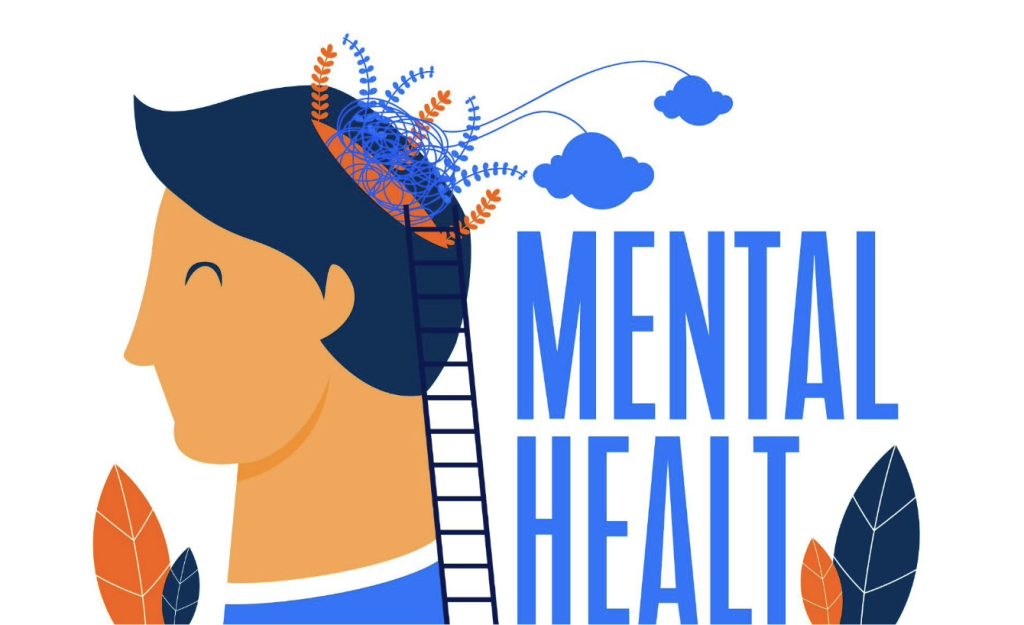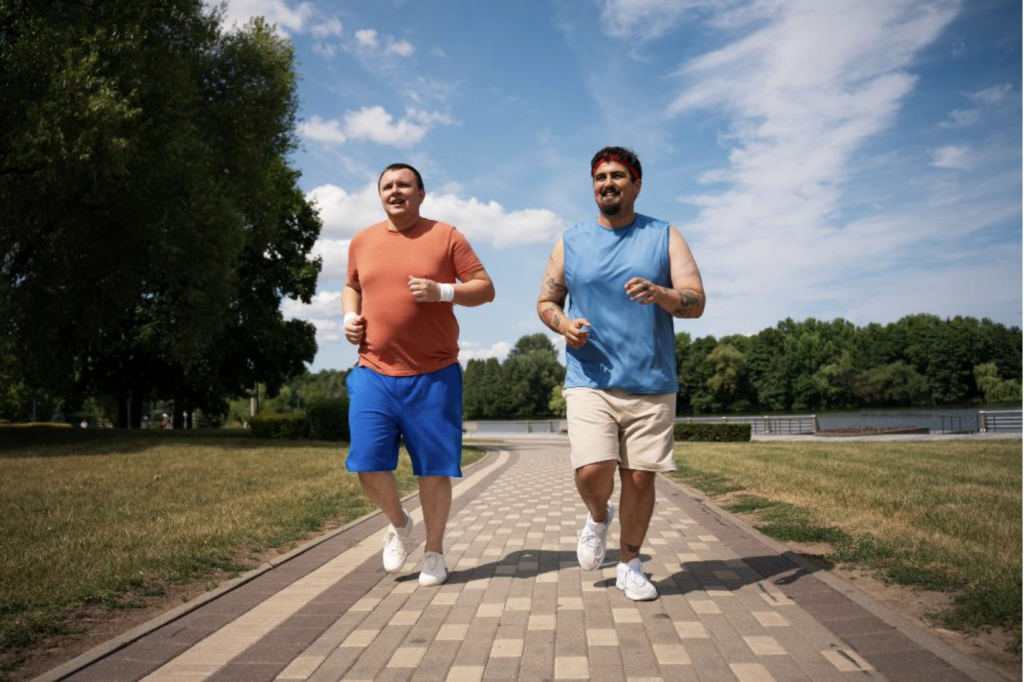
The journey towards holistic well-being is complex, and for individuals within the LGBTQ+ community, this path presents unique challenges and considerations. Queer Health and wellness encompass a wide range of aspects, including mental, physical, emotional, and sexual dimensions, all of which are intricately intertwined and contribute to overall well-being.
In recent years, there has been a growing recognition of the distinct health concerns and disparities faced by the LGBTQ+ population. From navigating societal stigma and discrimination to accessing inclusive healthcare services, individuals within this community often encounter barriers that can profoundly impact their mental, physical, and emotional well-being.
This article aims to provide a comprehensive exploration of queer health and wellness, delving into the various facets that contribute to a state of overall well-being. By shedding light on these issues and offering practical strategies and resources, we can work towards creating a more inclusive and affirming environment where every individual can thrive and embrace their authentic selves without fear or discrimination.
Mental Health.

Mental Health is a critical aspect of overall well-being, and the LGBTQ+ community often faces unique challenges in this regard. Societal stigma, discrimination, and the process of coming out can contribute to higher rates of anxiety, depression, and other mental health issues. According to a survey conducted by the Trevor Project, over 60% of LGBTQ+ youth reported experiencing symptoms of major depressive disorder, with nearly half-seriously considering suicide.
Coping strategies play a vital role in managing these challenges, and they can include:
- Building a Strong Support System: Surrounding oneself with a network of supportive friends, family members, and allies can provide a sense of belonging and validation as a buffer against discrimination and societal pressures.
- Seeking Professional Counseling or Therapy: Working with LGBTQ+ affirming mental health professionals can be invaluable in addressing issues related to identity, relationships, trauma, and mental health concerns. Therapists trained in LGBTQ+ affirmative approaches can provide a safe and understanding space for individuals to explore their experiences and develop coping strategies.
- Practising Mindfulness and Stress-Reducing Techniques: Incorporating mindfulness practices, such as meditation, deep breathing exercises, and yoga, can help reduce stress and promote overall mental well-being. These techniques can aid in cultivating self-awareness, managing emotions, and fostering a sense of inner peace.
- Joining LGBTQ+ Support Groups and Community Organizations: Connecting with others with similar experiences can provide a sense of community and understanding. Support groups and community organizations offer opportunities for peer support, resource sharing, and collective advocacy efforts.
- Advocating for Inclusive Policies and Raising Awareness: Engaging in advocacy efforts and raising awareness about mental health challenges faced by the LGBTQ+ community can help promote understanding, foster inclusive policies, and reduce stigma. Individuals can create a more supportive and affirming societal landscape by amplifying voices and sharing personal stories.
Physical Health.

Accessing quality healthcare and preventive measures is essential for maintaining physical well-being. However, the LGBTQ+ community often encounters unique barriers, such as discrimination, lack of provider knowledge, and hesitancy to disclose sexual orientation or gender identity. These challenges can lead to delayed or inadequate healthcare, potentially contributing to poorer health outcomes.
To address these challenges, individuals and healthcare providers can take the following steps:
- Educating Healthcare Professionals: Providing comprehensive training and education to healthcare professionals about LGBTQ+-specific health needs is crucial. This includes understanding the unique risk factors, preventive care recommendations, and culturally competent approaches to care.
- Promoting Inclusive and Affirming Healthcare Environments: Creating welcoming and inclusive healthcare settings can encourage individuals within the LGBTQ+ community to feel comfortable seeking care. This may involve displaying inclusive signage, providing gender-neutral restrooms, and ensuring non-discrimination policies are in place.
- Encouraging Regular Check-ups and Preventive Screenings: Regular health screenings and preventive care are essential for early detection and management of various health conditions. Healthcare providers should emphasize the importance of routine check-ups and tailor preventive care recommendations to the specific needs of LGBTQ+ individuals.
- Addressing Disparities in Access to Healthcare Services: Efforts should be made to identify and address systemic barriers that limit access to healthcare services for the LGBTQ+ community. This may involve expanding insurance coverage, increasing the availability of LGBTQ+-affirming providers, and implementing policies that promote equitable access to care.
- Advocating for Comprehensive and Inclusive Healthcare Policies: Advocating for policies that ensure non-discrimination, inclusive coverage, and equitable access to healthcare services can help address disparities and promote better health outcomes for the LGBTQ+ community.
Emotional and Sexual Health.
Navigating emotional challenges and maintaining sexual health are integral components of overall well-being for the LGBTQ+ community. Emotional challenges may arise from societal stigma, internalized prejudices, or the process of self-discovery and acceptance. Providing resources and support systems that address these unique experiences is crucial.
- Providing Comprehensive Sex Education and Resources: Inclusive and LGBTQ+-affirming sex education and resources are essential for promoting healthy sexual behaviours and addressing specific concerns related to sexual orientation and gender identity. These resources should cover topics such as safe sex practices, consent, healthy relationships, and sexually transmitted infection (S.T.I.) prevention.
- Promoting Open Communication and Safe Sexual Practices: Encouraging open and honest communication about sexual health, desires, and boundaries is vital for maintaining healthy relationships and preventing the spread of S.T.I.s. Healthcare providers and community organizations can play a crucial role in promoting safe sexual practices and providing access to resources like barrier methods and routine S.T.I. testing.
- Address HIV/AIDS and Other S.T.I.s: The LGBTQ+ community continues to face disproportionate rates of HIV/AIDS and other S.T.I.s. Efforts should focus on increasing awareness, promoting testing and early intervention, and addressing stigma and discrimination associated with these conditions.
- Offering Counseling and Support for Individuals. Navigating Relationships and Identities: Exploring one’s identity, navigating relationships, and addressing internalized prejudices can be challenging. Providing access to counselling services, support groups, and affirming resources can help individuals navigate these experiences in a healthy and empowering manner.
- Raising Awareness about Consent, Healthy Relationships, and Dating Violence Prevention: Educating individuals about the importance of consent, recognizing signs of unhealthy or abusive relationships, and promoting healthy relationship dynamics are crucial for fostering emotional well-being and preventing harm.
Holistic Approaches.
Adopting a holistic approach to health and wellness is essential for the LGBTQ+ community, as it recognizes the interconnectedness of mind, body, and soul. This approach acknowledges that well-being is multidimensional and requires a comprehensive approach that addresses various aspects of an individual’s life.
- Incorporating Mindfulness and Meditation Practices: Mindfulness and meditation practices can help cultivate present-moment awareness, reduce stress and anxiety, and promote emotional regulation. These practices can be incorporated into daily routines or through structured programs and workshops.
- Exploring Alternative and Complementary Therapies: Many individuals within the LGBTQ+ community have found solace and healing in alternative and complementary therapies, such as acupuncture, herbal remedies, energy healing, and bodywork modalities. These approaches can complement traditional healthcare and provide a holistic approach to well-being.
- Engaging in Physical Activities and Exercise: Regular physical activity and exercise can benefit overall health and well-being, including improved mood, increased energy levels, and reduced risk of chronic conditions. Finding enjoyable and inclusive physical activities, such as team sports, dance classes, or outdoor recreation, can be empowering and contribute to a sense of community.
- Practising Self-Care and Self-Compassion: Cultivating self-care practices and self-compassion is essential for nurturing overall well-being. This may involve engaging in activities that bring joy and relaxation, setting healthy boundaries, and practising self-acceptance and self-love.
- Seeking Spiritual or Religious Guidance (if applicable): For individuals who identify with a particularly spiritual or religious tradition, seeking guidance and support from affirming faith communities or leaders can provide strength, meaning, and connection.
- Embracing a Balanced Lifestyle: Striving for balance in various aspects of life, including work, relationships, leisure activities, and personal growth, can contribute to overall well-being. This may involve setting realistic goals, prioritizing self-care, and finding fulfillment in personal and professional pursuits.
Community and Advocacy.
The role of supportive communities and advocacy efforts cannot be overstated in promoting queer health and wellness. Strong support networks provide a sense of belonging, validation, and empowerment, while advocacy efforts strive to create inclusive policies and dismantle systemic barriers. This different approach involves:
- Building and Nurturing LGBTQ+ Affirming Communities and Safe Spaces: Fostering inclusive and affirming communities is crucial for individuals within the LGBTQ+ community to find a sense of acceptance, connection, and support. These communities can take various forms, such as social groups, community centres, online forums, or specialized meetups. A sense of solidarity and empowerment can be cultivated by creating safe spaces where individuals can freely express themselves and share their experiences.
- Advocating for Non-Discrimination Policies in Healthcare, Employment, and Other Sectors: Discrimination and systemic barriers continue to hinder the LGBTQ+ community’s access to equitable healthcare, employment opportunities, and other essential services. Advocacy efforts to implement comprehensive non-discrimination policies can help ensure equal rights and protections, ultimately promoting overall well-being and quality of life.
- Raising Awareness and Fostering Dialogue about LGBTQ+ Health and Wellness Issues: Increasing Public Awareness and fostering open dialogue about the unique health and wellness challenges faced by the LGBTQ+ community is crucial for driving positive change. This can be achieved through educational campaigns, public forums, media representation, and collaboration with allies and community leaders.
- Collaborating with Allies and Organizations to Amplify Voices and Effect Change: Forming strategic partnerships and collaborations with allies, advocacy organizations, and community leaders can amplify the voices of the LGBTQ+ community and accelerate progress toward inclusive policies and practices. These collaborations can drive systemic change and promote equitable access to healthcare, social services, and support systems by leveraging collective expertise, resources, and influence.
- Participating in Research and Data Collection Efforts: Robust research and data collection efforts are essential for informing evidence-based policies, practices, and interventions that address the specific needs of the LGBTQ+ community. Encouraging participation in research studies and data collection initiatives can help identify gaps, inform resource allocation, and guide the development of tailored programs and services.
Conclusion.
Queer Health and wellness encompass a multitude of dimensions, each with its unique challenges and considerations. By adopting a holistic approach that addresses mental, physical, emotional, and sexual health, the LGBTQ+ community can strive towards overall well-being. This journey requires the collective efforts of individuals, healthcare providers, communities, and policymakers to create inclusive environments, dismantle barriers, and promote affirming and supportive practices.
Prioritizing mental health through access to LGBTQ+-affirming counseling, support groups, and coping strategies is essential for fostering emotional resilience and managing the unique stressors faced by this community. Additionally, ensuring equitable access to quality healthcare, inclusive education for providers, and comprehensive preventive care can address disparities in physical well-being.
Emotional and sexual health are closely intertwined, and providing inclusive resources, comprehensive sex education, and affirming support systems can empower individuals to navigate relationships, identities, and sexual health concerns with confidence and safety. Integrating holistic approaches that nurture the mind, body, and soul through mindfulness, physical activity, and self-care can promote overall well-being and foster a sense of balance and fulfillment.
Furthermore, the power of community and advocacy must be considered. By building supportive networks, advocating for inclusive policies, raising awareness, and collaborating with allies, the LGBTQ+ community can dismantle systemic barriers and create a more affirming societal landscape.
As society continues to evolve, it is imperative to prioritize queer health and wellness, fostering a future where every individual can thrive and embrace their authentic selves without fear or discrimination. Together, through collective action, education, and compassion, we can pave the way for a more inclusive and equitable world that celebrates the diversity of the LGBTQ+ community and ensures their fundamental right to holistic well-being.


